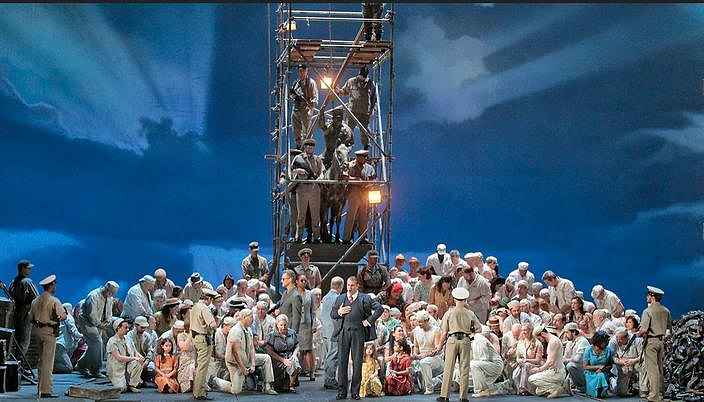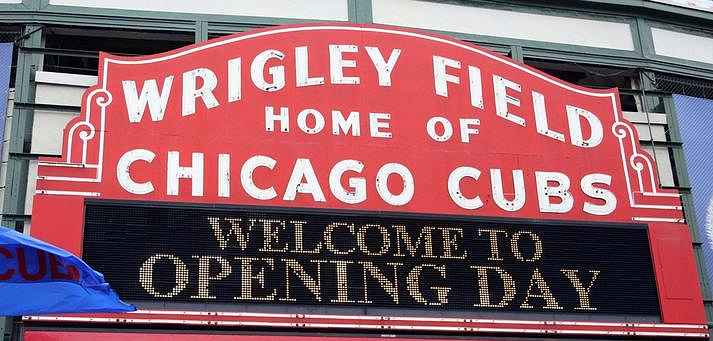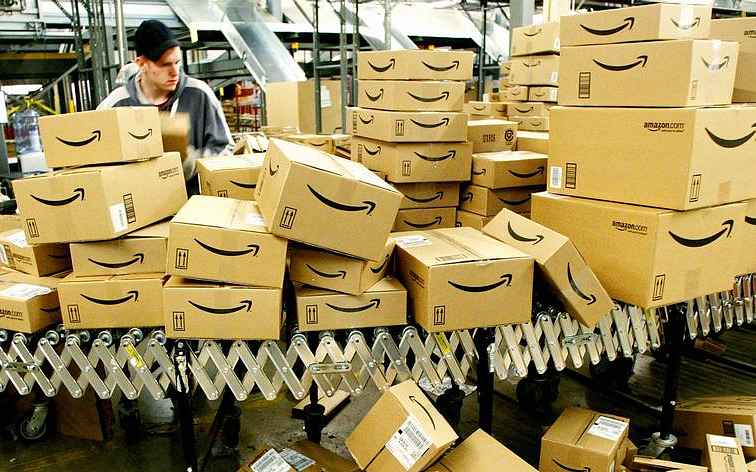






See listing of Recent and Most Popular articles on the Home Page
My World
Category: General / Topics: Advertising • Change • Cost of Living • COVID-19 • Crisis • Current Events, News • Ethics & Morality • Financial • Holidays • Holiday Season • Lifestyle, General • Opportunity • Social Issues • Technology
It's Time for Americans to Buy Less Stuff
Posted: October 29, 2021
Thanks to the supply chain crisis, holiday shopping won't be easy this year—even if you buy early…
Editor's Note: Perhaps like Terry Nguyen of Vox, you have heard a lot of messages urging you to buy early or change your plans for Christmas giving this year because the supply chain is so woefully behind demand. Following are excerpts from Nguyen's article, posted October 21, with a link to the full article at the bottom of the page. Sometimes, though, a crisis is an opportunity--in this case, not to do more, but to reflect and do less. It could bring real benefits to you, your family, and the planet!,
In September, I started getting pesky emails from brands hinting that I should get a head start on my holiday shopping. Next came the headlines, and then the reminders from social media users dishing out the same advice. Holiday shopping starts a little earlier every year, but this isn’t just the typical push. People are encouraged to order their gifts as soon as possible or risk having packages arrive late, due to rampant supply chain disruptions and mailing delays. Even books (yes, books!) aren’t safe from the impending shortages.
The holiday shopping industrial complex feels especially unavoidable in 2021, with Halloween still more than a week away. Amazon, Macy’s, Target, and Walmart have launched early-bird sales, and retailers are preparing to dish out millions of dollars on ads for strong fourth-quarter sales.
The pandemic briefly curbed consumer spending, but not for very long: As the country opened back up, Americans felt the urge to get out and shop, an impulse that retailers and marketers happily indulged. The early fall holiday shopping schedule is billed to benefit customers by reducing their annual holiday stress, which will likely be compounded by supply chain delays. But when the early bird catches the worm (and the sales), the retailers rake in all the profits.
Early holiday shopping sprees are good news for retail corporations, logistics companies, and the US economy, but bad, ultimately, for millions of workers (manufacturing, retail, logistics, warehouse) and the planet. Instead of opting to order our Christmas presents early, perhaps now is the time to reconsider America’s great shopping addiction.
When the stuff we want is so hard to get ahold of, why go to such great lengths to buy it? Consumers have the option to not order items manufactured overseas, to source things locally from small businesses or artisans. We also have a choice that eliminates the potential for shipping or supply chain mishaps: We can just buy less.
We know that our collective consumption of consumer goods, from the creation of plastic toys to the fossil fuels that ship them to our homes, isn’t good for the environment. Yes, on a consumer level, our ability to control resource consumption is minimal, but that doesn’t mean there’s no good in a holiday season where gift exchanges don’t require an Amazon Prime account or transit via multiple shipping containers. Mindfulness has its own benefits, especially for affluent consumers, which includes America’s upper-middle class. The higher-income consumers among us use far more resources than the less well-off and are responsible for influencing shopping norms at large.
Americans are now more aware than ever of the global supply chain and its vulnerability to unexpected snarls (like the Suez Canal blockage), raw-material shortages, and shipping delays. Experts predict that these problems, set off by the pandemic, won’t let up until 2022 or 2023. To help reduce supply chain backlogs, the Biden administration has ordered major ports and shipping companies, including Walmart, UPS, and FedEx, to increase their working hours. These domestic efforts, while heartening for consumers, are unlikely to assuage existing supply and demand issues across the world.
Meanwhile, the growing severity of climate disasters threatens to impact how we produce, source, and ship these goods, raw materials, and the food we eat. Product shortages and delays, it seems, are the new normal. At the end of this logistic maze is the shopper, whose buying tendencies are cultivated and incentivized from a young age. The entire consumer enterprise could be summed up in one Ariana Grande lyric: “I see it, I like it, I want it, I got it.”
If these supply chain problems are expected to persist, however, we must be prepared to curb our shopping habits. Conscious or decreased consumption might not move the needle much on climate change or improve the exploitative working conditions faced by those who produce and ship our goods, but that doesn’t mean we have to be trapped in a cycle of thoughtless buying. The alternative isn’t a moral neutral.Must we continue to drown in our unlimited and unfettered need for more stuff, or could we start buying less?
From here, Nguyen presents two sections that go into more detail on the moral and environmental impacts of consumption. We'll highlight them here. Follow the link at the bottom to read the full text.
In his book The Uninhabitable Earth, journalist David Wallace-Wells wrote that “there is something of a moral crime in how much you and I and everyone we know consume, given how little is available to consume for so many other people on the planet.”
Shopping, by this logic, is a sin, one that Americans can’t live without. Well-intentioned consumers have tried to do the next-best thing: Shop sustainably. But sustainable shopping is still ... shopping. It’s an oxymoronic act that makes us feel good about the things we buy. True sustainability requires reducing our consumption (and, likely, the country’s economic growth), not through buying “greener” products.
. . .
Social norms are shifting, and some people are starting to push back against thoughtless, unlimited consumption. Consumers are not only aware of the forces that influence them to buy things but are also, like Steph, actively working to combat them. “I like to believe that everything we do, no matter how small it is, has some sort of impact,” Steph said. “You can demand corporate responsibility while making better individual choices. I don’t think they’re mutually exclusive.”
Individual choice has had an outsized role in climate change discussions, even when it’s clear that federal regulation is the best and most direct way to curb global carbon emissions. The “personal responsibility” debate has trapped American consumers in a cycle of cynicism. It’s easy to shrug our shoulders and continue to order from Amazon while we mutter under our breath that “there is no ethical consumption under capitalism.”
As citizens of the wealthiest country in the world, Americans’ personal choices do carry some weight. The problem is, it’s hard to quantify the environmental impact of individual actions and lifestyles. Plus, structural systems and social norms make it nearly impossible for people to break shopping habits. About 70 percent of the US economy, after all, stems from consumer spending.
. . .
Reducing one’s carbon footprint requires more frugal sacrifices than buying less stuff (such as flying less, eating less meat, using more public transportation), but it’s a good place to start. This holiday season offers a bizarre, supply-chain-induced opportunity to change our shopping habits, to give more thoughtfully, to buy more locally and less overall. Most households are hard-wired to splurge on end-of-year gifts, and it’s unlikely people will ever stop even if the crisis worsens. The supply chain issues can, though, lead us to buy more conscientiously.
The mission to buy less with more intention is achievable for everyone, especially affluent shoppers. It’s incumbent on Americans, the wealthiest people in the world, to cut back on and be critical of their consumption. Plus, if you haven’t ordered that Xbox Series X for the lucky gamer in your life, you might already be out of luck.
Search all articles by Terry Nguyen
Posted: October 29, 2021 Accessed 252 times
![]() Go to the list of most recent My World Articles
Go to the list of most recent My World Articles
![]() Search My World (You can expand the search to the entire site)
Search My World (You can expand the search to the entire site)
![]() Go to the list of Most Recent and Most Popular Articles across the site (Home Page)
Go to the list of Most Recent and Most Popular Articles across the site (Home Page)
 Loading requested view...
Loading requested view...
